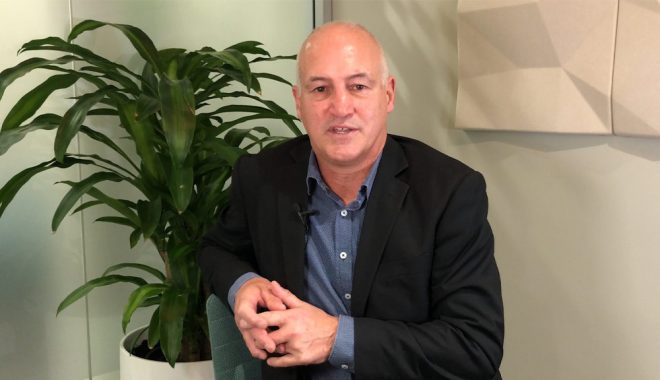Being unfairly dismissed from your employment can place a lot of stress on you and your family. If your dismissal is harsh, unjust or unreasonable, it can also have an impact on your ability to obtain new employment and maintain your regular lifestyle. You may be eligible to make an unfair dismissal claim.
Unfair Dismissal Lawyers NSW
Although we can’t alleviate the stress you may be experiencing, we may be able to help you receive some compensation via an unfair dismissal claim. We may also be able to have your sacking converted to a resignation and have a Statement of Service issued to you which should place you in a better position to find a new employment relationship. However:
It’s important you make your unfair dismissal application within the strict time limit of 21 days from the date of your dismissal.
What type of claim am I eligible for?
You should also be aware that you may have more options available to you than just an unfair dismissal claim. These other types of claims could entitle you to much more compensation, because some of these claims have uncapped compensation. You could have a:
- Breach of Contract Claim;
- Adverse Action Claim (General Protections Claim);
- Discrimination Claim; or
- Unlawful Termination Claim
If you have one of these other claims, you need to be careful not to commence or settle an unfair dismissal claim first, as it could prevent you from making the other claim. That is why it’s important to speak to a lawyer before lodging your unfair dismissal application with the Fair Work Commission (FWC).
What do I do now? What are the costs involved in an unfair dismissal claim?
If you have been terminated and you think the circumstances are harsh, unjust, unreasonable, or in breach of your contract, one of our experienced team’s members can provide you with a preliminary assessment of your circumstances to assist you to decide which path to take.
The preliminary assessment does not involve the provision of a comprehensive advice about your circumstances, rather it’s a twenty minute telephone conference with one of our team members at a prearranged time to assist you to decide which path to take.
Contact our Employment Law Team today to find out the cost of, and arrange a time for, the preliminary assessment.
Unfair Dismissal Laws: Frequently Asked Questions
Please read our FAQs below before getting in touch with us.
1. Have I been unfairly dismissed?
If your employer has broken the law in dismissing you or they have breached your employment contract, you may be eligible to lodge an unfair dismissal claim under the Fair Work Act 2009 (Cth).
Common situations in which a dismissal is deemed unfair:
- the redundancy is not genuine, i.e. the position was not actually made redundant;
- the employer did not follow correct procedures in effecting the dismissal;
- the employee was terminated as a result of unsatisfactory performance, however the employee was never notified of any issues relating to their performance in the lead up to the terminated;
- the employer refused to allow the employee to have a support person from Human Resources (or legal representative) present to assist them at any meetings or discussions directly related to the dismissal;
- there is no actual valid reason for the dismissal;
- the employee was not formally notified (written notice of termination) of the reason for the dismissal; and
- the employee was not given an opportunity to formally respond to the reasoning behind the dismissal.
In unique circumstances, there are also a number of other considerations the Fair Work Commission (FWC) makes when deciding if a dismissal was unfair. If your dismissal does not fall into one of the common situations listed above, and you still believe it to be unfair, you should seek legal advice immediately.
2. Am I eligible to make an unfair dismissal claim?
In order to be eligible to make an unfair dismissal claim in NSW, your employment relationship must fall within the scope outlined within the Fair Work Act 2009 (Cth). This means:
- Your employment was covered by a modern award or enterprise agreement;
- If your employment was not covered by a modern award or enterprise agreement and your salary did not exceed the ‘High Income Threshold’, which is currently $138,900 (if it did exceed this threshold, you may still be eligible – read this article for more information);
- You must have been employed for more than 6 months, or more than 12 months if your employer has fewer than 15 employees (if your employer has fewer than 15 employees the rules that govern unfair dismissal are different and your employer need only have complied with the Small Business Fair Dismissal Code)
You will not be eligible if:
- You were an apprentice or trainee;
- You were still within your probationary or qualifying period (provided this period was determined in advanced and agreed upon by both parties and was 3 months or less – if your period was longer than 3 months, you may still be eligible, however you will need to seek legal advice)
- You were engaged under a contract of employment for a specified period of time (provided that period of time is 6 months or less – if your period was longer than 6 months, you may still be eligible, however you will need to seek legal advice);
- You were engaged under a contract of employment to complete a specific task;
The best way to determine if you are eligible is to take this online quiz: click here
3. If I was made redundant, can I still make an unfair dismissal claim?
It is common for employers to dismiss employees on the basis of redundancy and use this as a valid reason for the dismissal. However, this can only legally occur if your position was genuinely made redundant. This means:
- Your employer no longer required your job to be performed as a result of operational or structural changes;
- Your employer has complied with any obligation in an enterprise agreement or modern award to consult about the redundancy;
- It was not reasonable for your employer to redeploy you within the business or a related business
The law that governs redundancy and unfair dismissal is complex and, in most cases, requires interpretation from a person or entity that has experience in this area of Employment Law. If you have any doubts about your eligibility you should seek legal advice immediately, as a strict time limit of 21 days does apply.
4. If I resigned, can I still make an unfair dismissal claim?
Yes, in some cases if an employee resigns they may still be eligible to make an unfair dismissal claim.
This is when a ‘Constructive Dismissal‘ occurs. A constructive dismissal is when the employee resigns, because of the conduct or actions of their employer. The single most common situation that this occurs in is when an employer gives their employee an ultimatum by telling them that they must resign or be sacked. Again, this is another complex area of Employment Law that requires legal advice to determine eligibility.
5. What is the difference between unfair dismissal and unlawful termination?
An employee who is not eligible to make a claim may still be able to make an Unlawful Termination Claim (also called a General Protections Claim). This type of claim does not look at whether the dismissal itself was unreasonable, unjust or unfair. Instead it looks at whether the reason behind the dismissal was contrary to unfair dismissal laws (unlawful).
Common situations in which a termination is deemed unlawful:
- It occurred as a result of absence from work during maternity leave or other parental leave;
- It occurred as a result of absence from work because of illness or injury;
- It occurred as a result of discrimination (race, colour, sex, age, sexual preference, marital status, physical or mental disability, pregnancy, political opinion, religion, family responsibilities, social origin or national extraction);
- It occurred as a result of trade union membership, participation in trade union activities or non membership of a trade union;
- It occurred because the employee refused to vary, extend, terminate, sign or make an Australian Workplace Agreement (AWA); or
- It occurred because the employee made an official complaint against their employer or as a result of participation in proceedings.
6. How much am I likely to receive if my unfair dismissal claim is successful?
Generally, there are two outcomes for unfair dismissal claims: reinstatement or compensation. However, reinstatement rarely occurs. The maximum compensation payable is capped at six months pay (read this article) This will generally only be awarded in the most serious of cases. If the employee is reinstated, they may still be eligible to receive “back pay” for the period of unemployment from the date of dismissal to the date of reinstatement.
7. How strict is the 21 day time limit for unfair dismissal claims?
Very strict, however, there have been cases where the FWC has extended the time limit, but only in exceptional circumstances. If the time limit has passed and you still want to lodge a unfair dismissal application, you should seek legal advice immediately to determine if your situation might qualify as an exceptional circumstance.
If you are going to make a claim, ensure sure you do so within 21 days of your termination
8. What is the first step?
The first step you should take is contacting the FWC (http://www.fwc.gov.au – 1300 799 675), who are the national workplace relations tribunal. If it looks like you have a viable unfair dismissal claim, the FWC will advise you to seek legal advice – which is when you get in contact with us.
Note: while contacting the FWC should be the first step you take, we still recommend seeking the advice of an Employment Lawyer before you file your claim form.
9. What is a breach of contract claim? (In the context of a dismissal)
If your employer, by dismissing you, has breached one or more of the terms of your employment contract (whether or not that contract is in writing) you may have a breach of contract claim.
10. What is an adverse action claim? (In the context of a dismissal)
If your employer has dismissed you merely because you exercised, or sought to exercise, a workplace right (e.g. to take sick leave) you may have an adverse action claim.
11. What is a discrimination claim? (In the context of a dismissal)
If your employer discriminated against you by terminating you because of one or more of your personal attributes. Your personal attributes include your: race; skin colour; social origin; gender; sexual preference; age; physical or mental disability; marital status; family or carer responsibilities; pregnancy; religion; or political opinion.
Recent cases
Date of dismissal: January 2021
Date of Fair Work Commission Decision: 7 May 2021
Date employment commenced: 2 July 2015
Summary of facts: On 5 January 2021, the Applicant took a client on an excursion. It was a hot day, and the client was returned to her home with severe sunburn, and the Applicant did not report the incident to the Respondent. On 9 January 2021, the Respondent received a complaint from Rocky Bay, an accommodation facility. The complaint concerned the support provided to their resident, over the course of 6 and 7 January 2021. The Team Leader of Rocky Bay, she felt that the weather had been too hot for the outdoor excursions, and the client had returned home on 6 January 2021, and thereafter experienced two seizures, which could have been brought on by heat exposure.
Finding: The dismissal was not harsh, unjust or unreasonable. The application was dismissed.
Compensation for past and/or future loss of income: Not applicable
Read more
Date of dismissal: 11 March 2021
Date of Fair Work Commission Decision: 21 June 2021
Date employment commenced: The alleged employment commenced 20 August 2020, by way of a supplier agreement
Summary of facts: Application for leave to lodge an unfair dismissal application with the Fair Work Commission out of time. On 24 May 2021 Mr M made an unfair dismissal application in relation to an alleged dismissal by Deliveroo Australia Pty Ltd which took effect on 11 March 2021. Mr M’s application was made 74 days after the alleged dismissal took effect, being 53 days beyond the statutory time-limit, of 21 days. For Mr M’s application to proceed it required the Commission to grant an extension of time in which to file his application. Deliveroo opposed the application. It opposed the application on jurisdiction and merit grounds. It claimed that Mr M was not an employee and thus not dismissed within the meaning of the Fair Work Act.
Finding: There being no exceptional circumstances, the time for lodging the claim was not extended. The application was dismissed.
Compensation for past and/or future loss of income: Not applicable
Read more
Get help now
We respond in 24 hours or less!
"*" indicates required fields
Articles
-

-

-

-

-
 30/11/2022 by Gavin Hanrahan Some potential pre-Christmas housekeeping …
30/11/2022 by Gavin Hanrahan Some potential pre-Christmas housekeeping …
-
 24/06/2020 by Gavin Hanrahan 6 Ways To Improve Employee Attendance
24/06/2020 by Gavin Hanrahan 6 Ways To Improve Employee Attendance -
 04/07/2017 by Gavin Hanrahan What is the Unfair Dismissal High Income Threshold?
04/07/2017 by Gavin Hanrahan What is the Unfair Dismissal High Income Threshold? -
 05/07/2020 by Gavin Hanrahan Unfair Dismissal Maximum Compensation Explained
05/07/2020 by Gavin Hanrahan Unfair Dismissal Maximum Compensation Explained -
 01/02/2018 by Gavin Hanrahan Probation periods and minimum employment periods
01/02/2018 by Gavin Hanrahan Probation periods and minimum employment periods -
 07/09/2020 by Gavin Hanrahan What are valid reasons for a family emergency when giving employees carer's leave?
07/09/2020 by Gavin Hanrahan What are valid reasons for a family emergency when giving employees carer's leave?












 Liability limited by a scheme approved under Professional Standards Legislation
Liability limited by a scheme approved under Professional Standards Legislation